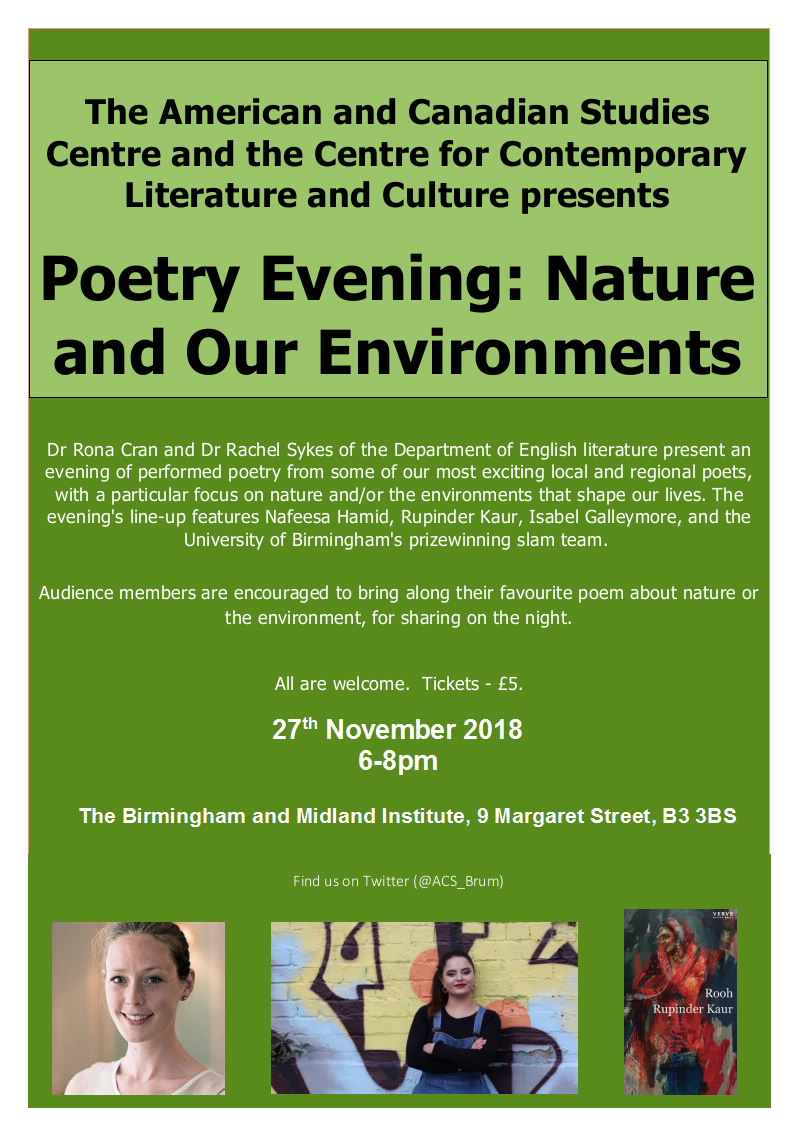
At 6pm, our evening of poetry reading at the Birmingham & Midland Institute began. The theme of the event – ‘Nature and Our Environments’ – hinted initially at the increasingly pressing ecological crises emerging in the contemporary age, yet proved to be a highly flexible point of departure for thinking about not only the physical world itself but about all types of conditions that might surround us influencing the ways in which we live and shape our identities. This loose theme grew initially from work by our first reader, Isabel Galleymore, a poet and environmental critic, and from her recent poetry residency in the Amazon Rainforest at the Tambopata Research Centre. There she explored environmental writing at the heart of the most diverse ecosystem in the world, reflecting on what it can mean to ‘be at one with nature’; is this a positive symbiosis, or a more cynical method of advertisement – a way of marketing the natural world that causes us to forget our responsibilities?
Galleymore read for us from her upcoming collection Significant Other, which emerged out of ideas from ecocriticism and the work of theorists like Donna Haraway to examine the differences between animals and humans, and the consequences of treating a nonhuman world as it were human first and foremost. Her first poems focused directly on some of the individual animals she came across, including the seahorse and the slipper limpet, an unusual creature which is able to change its sex. From her most recent work, she read a selection which also reflected on issues more complex and harder to articulate, drawing on the ‘significant other’ of the love narrative as well as the themes of betrayal and denial which all tied into the currently freighted debates over climate change. Her poem, ‘Choosing’ was inspired by the diversity of plants and animals inhabiting the Earth, the numbers of which are estimated to be around 8 million different species. ‘The New World’ approached this diversity by a mashup of names – a technique aimed at capturing this extensive breadth. Her final and newer poem, ‘Spirit Human’, was inspired by the spirit animals of the Amazon’s indigenous communities, who hold a unique relationship to that ecosystem and help us to rethink our intimacy and empathy with our environments from a perspective that isn’t restricted to the West.
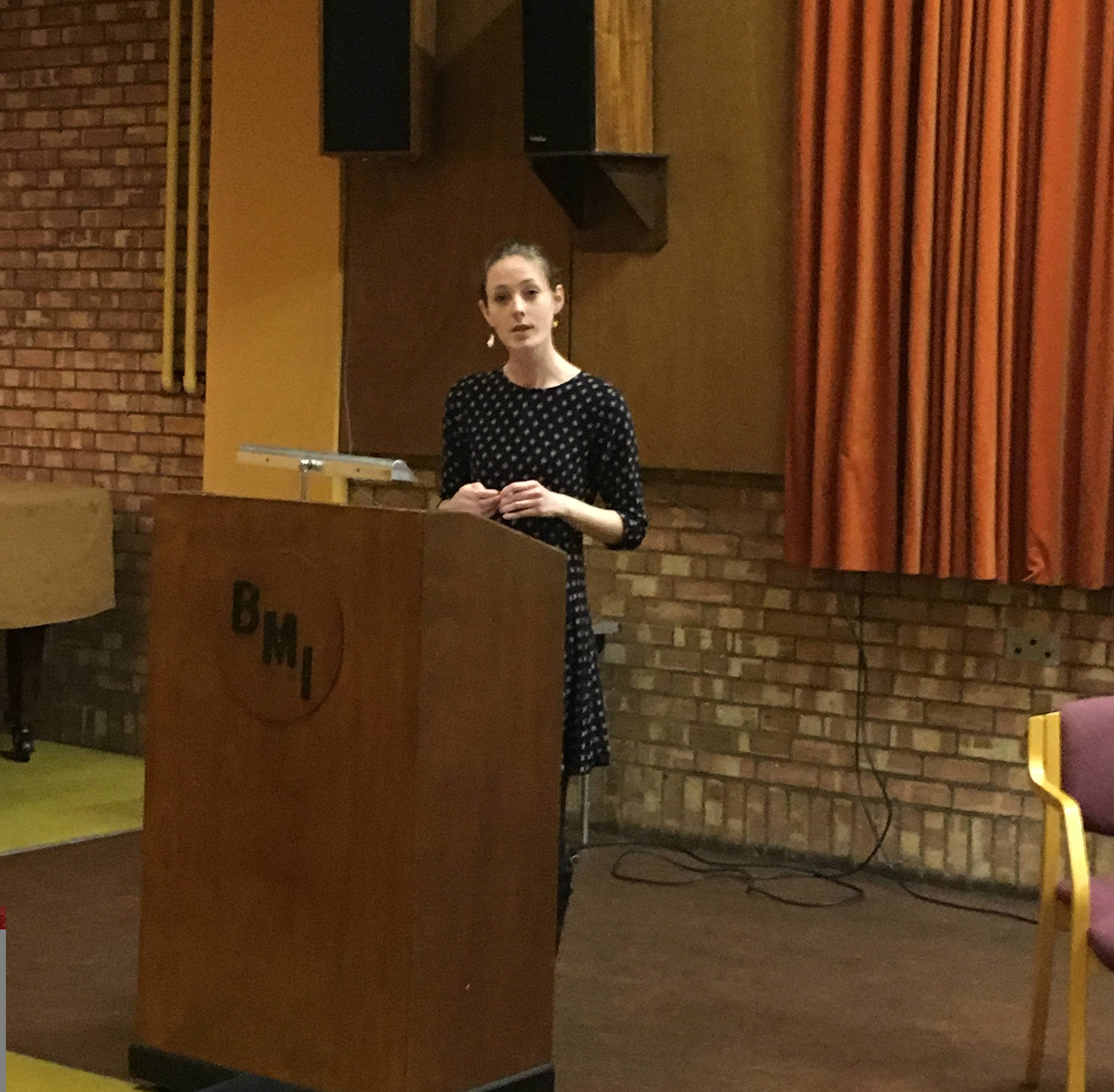
Following on from Galleymore’s readings, Nafeesa Hamid read from her 2018 collection Besharam, focusing predominantly on family and the environments in which we grow up (an idea she admits having purloined from fellow poet, Rupinda Kaur). Her collection investigates what it means to be a both a woman and a daughter in a Twenty-First Century United Kingdom whilst culturally straddling both Pakistan and the West. Hamid’s style of reading was especially evocative and engaging, with her pieces such as ‘Missing’ and ‘How Men are Made’ drawing on the troubled relationship between her mother and father, oppressive households, domestic violence, and sexual assault. Hamid continued her highly personal selection with thoughtful reflections on what she referred to as ‘mental health shenanigans’ – both of herself and her mother – and how they are exacerbated by particular environments. Her reading concluded with the poems ‘Candyfloss’ and ‘In this one no one notices’, which reflects on the pervasive invisibility of emotional pain.
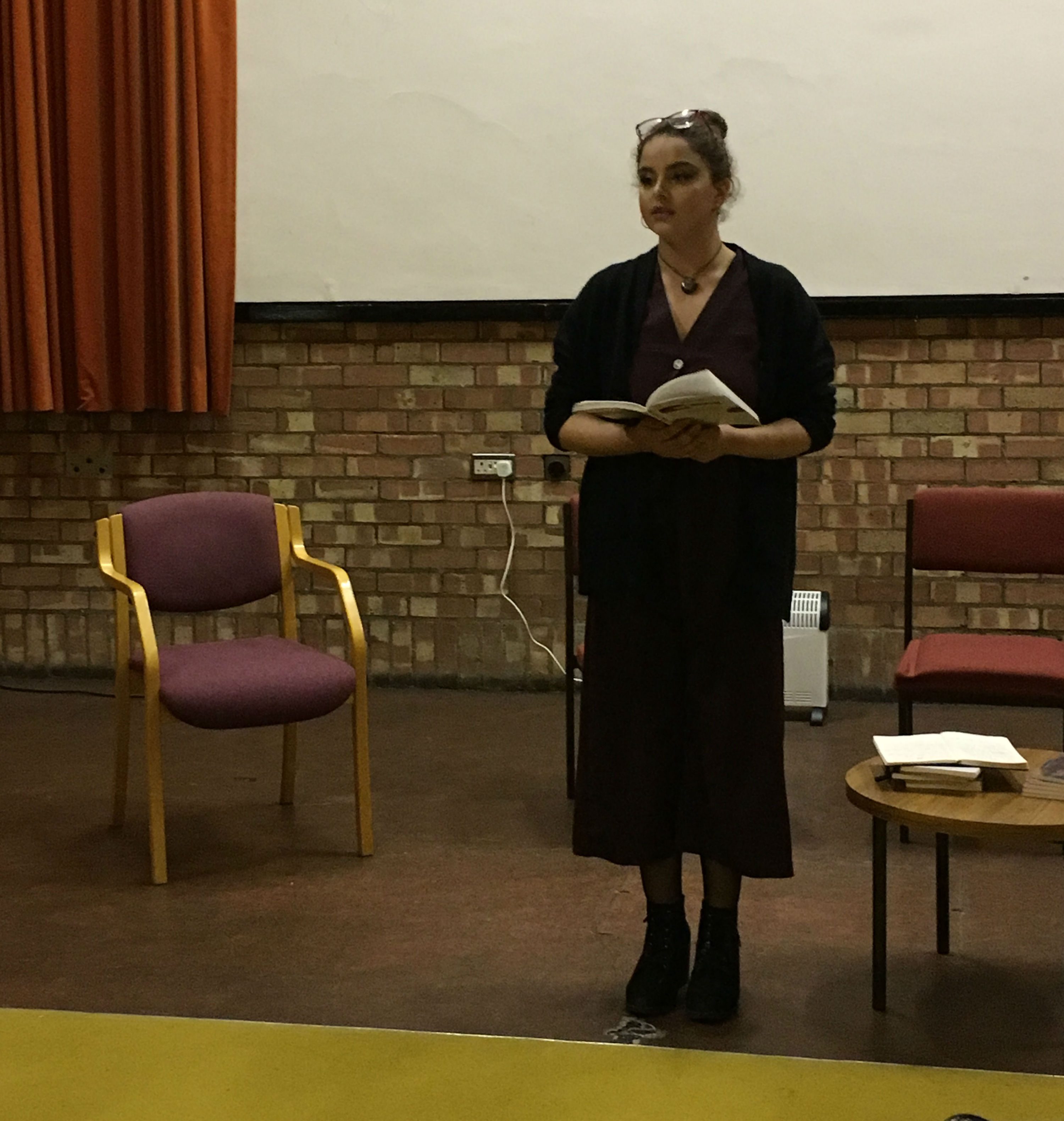
The next poet, Rupinder Kaur, also took the idea of environment more liberally, selecting works that examine the surroundings of our daily lives from her outspoken and polyglottic 2018 collection Rooh, which among many things seeks to examine the incoherencies of those borders that might be placed around our environments. Taking us from trams to graveyards, and reflecting on femininity and fireflies, Kaur spoke on those environments in which women are raised and treated unfairly or cruelly; her poem, ‘Last Night I Saw God’ reflects on what it must be like as a mother living in these environments with children. Her selection of poetry for this evening wished to reflect on environments in other countries outside of the West and make us question ourselves about the familiarity of environments and who can and cannot participate in this familiarity.
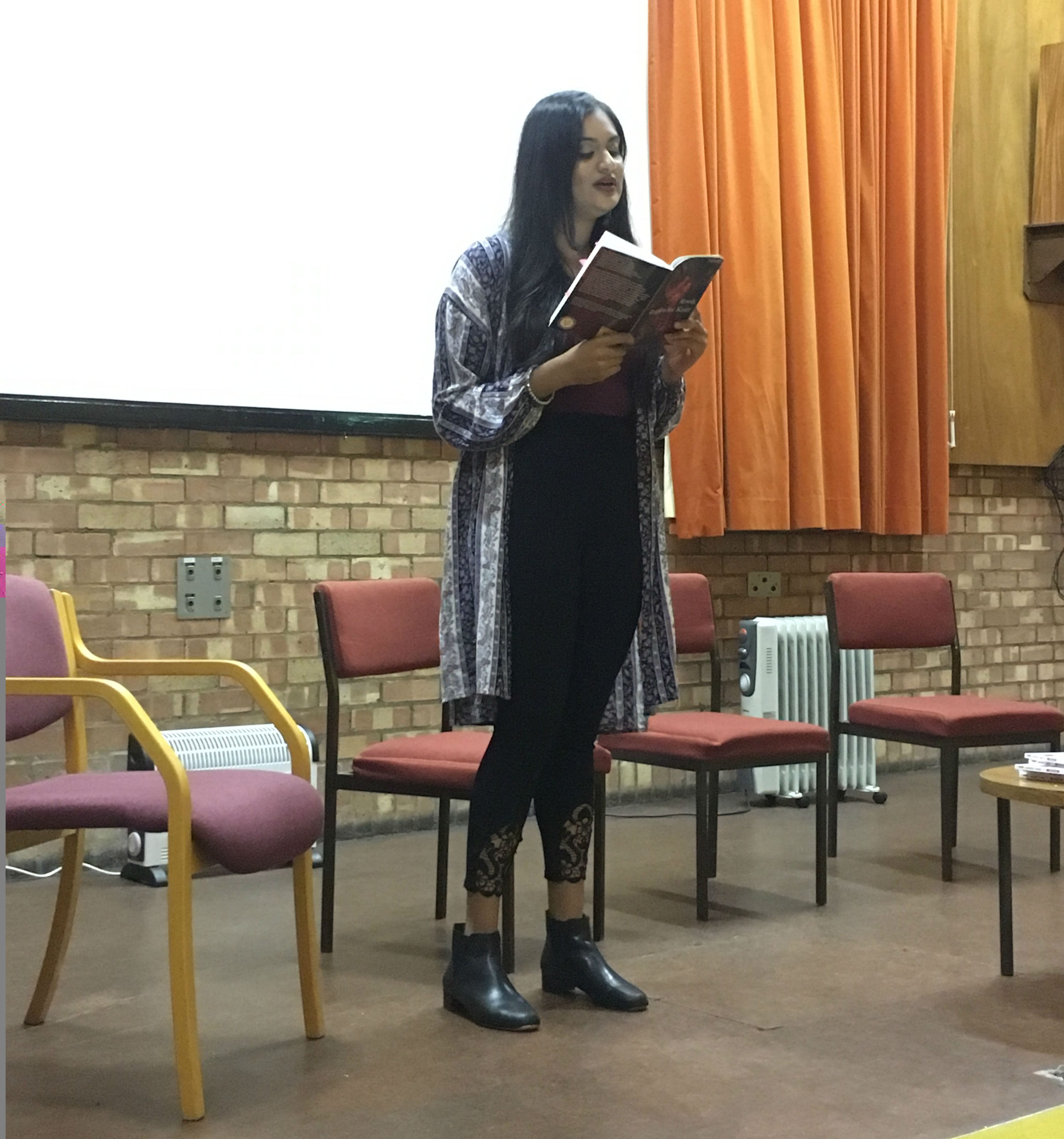
The final set of readings came from the University of Birmingham slam poetry team, the Second City Poets, who have been national award winners at UniSlam 2018. They were represented by Sean Colletti, Hannah Ledlie, Kimberley Knaggs, and Anne Gill. Reassembling themselves for each performance, and sometimes reading as soloists, topics were varied but the team maintained a focus on oppressive environments for women, complementing the performances of Hamid and Kaur. The first piece, ‘He Likes You’, examined ‘boys-will-be-boys’ behaviour, asking about what is expected of boys and which harmful and violent behaviours are overlooked or allowed to pass as affectionate.
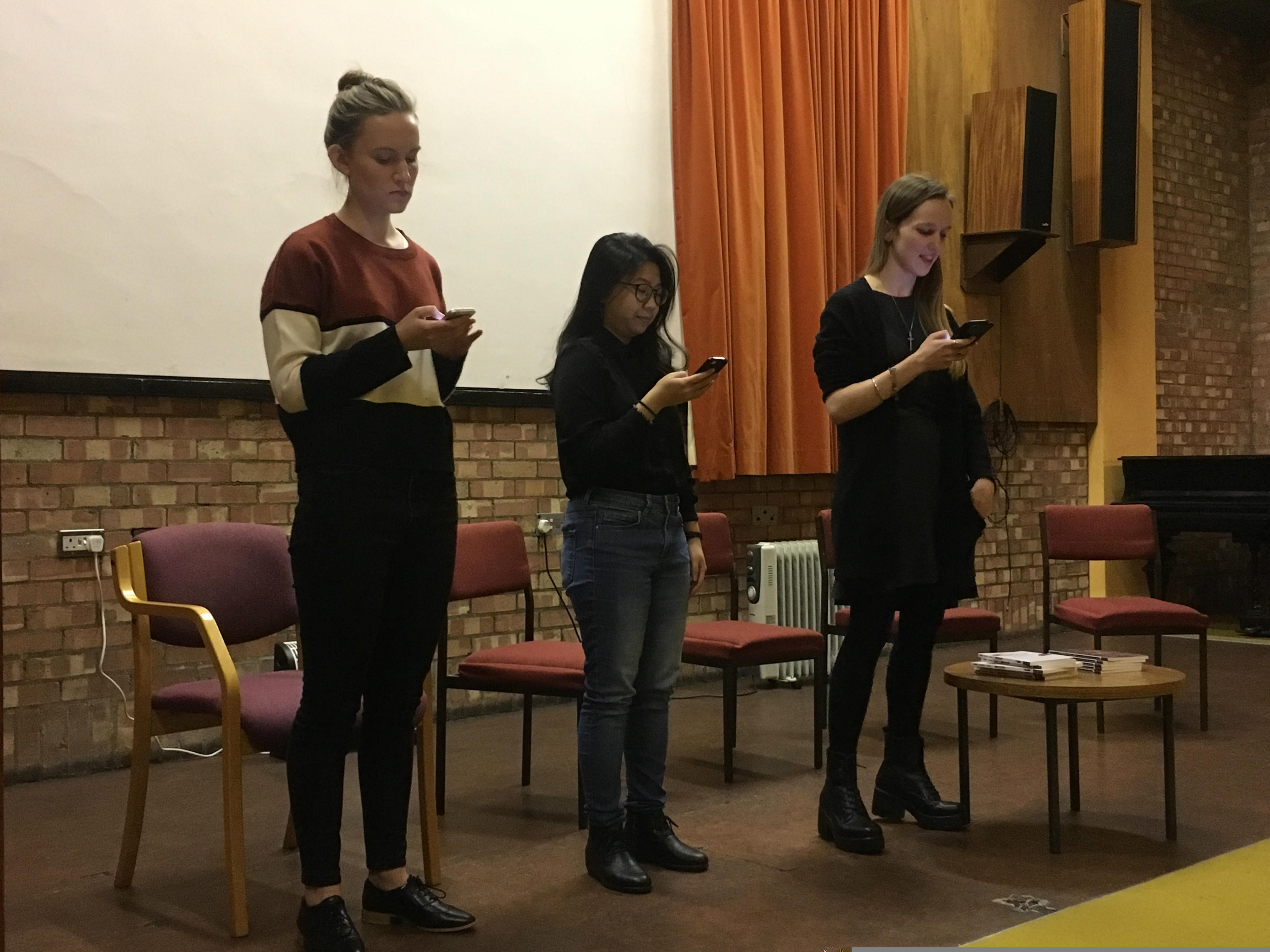
Another came from Knaggs who, as a law student, looked specifically at women in law. Her poem ‘Miss Bebb’ was inspired by the play The Disappearance of Miss Bebb by Alex Giles concerning Gwyneth Bebb, the first woman allowed to study law in England. Knaggs asked questions about feminist law in the Twentieth Century, and the historical exclusion of women from institutions of authority. Another piece by Gill utilised a series of translations from her university studies, incorporating the gay argot Polari, as well as official shorthand. This was followed by alternating shorts by both Colletti and Ledlie and then an emotional work by Colletti on infidelity.
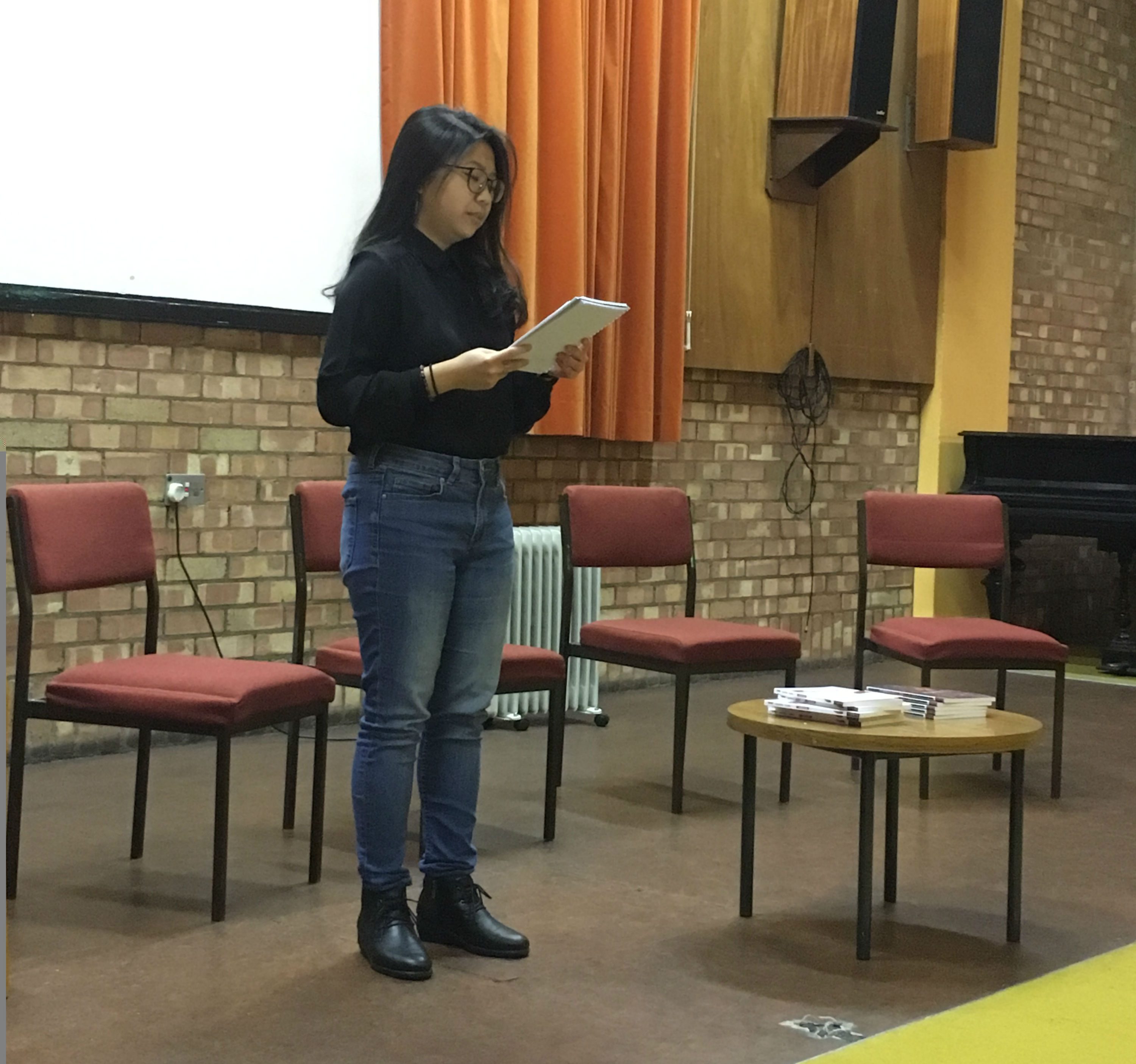
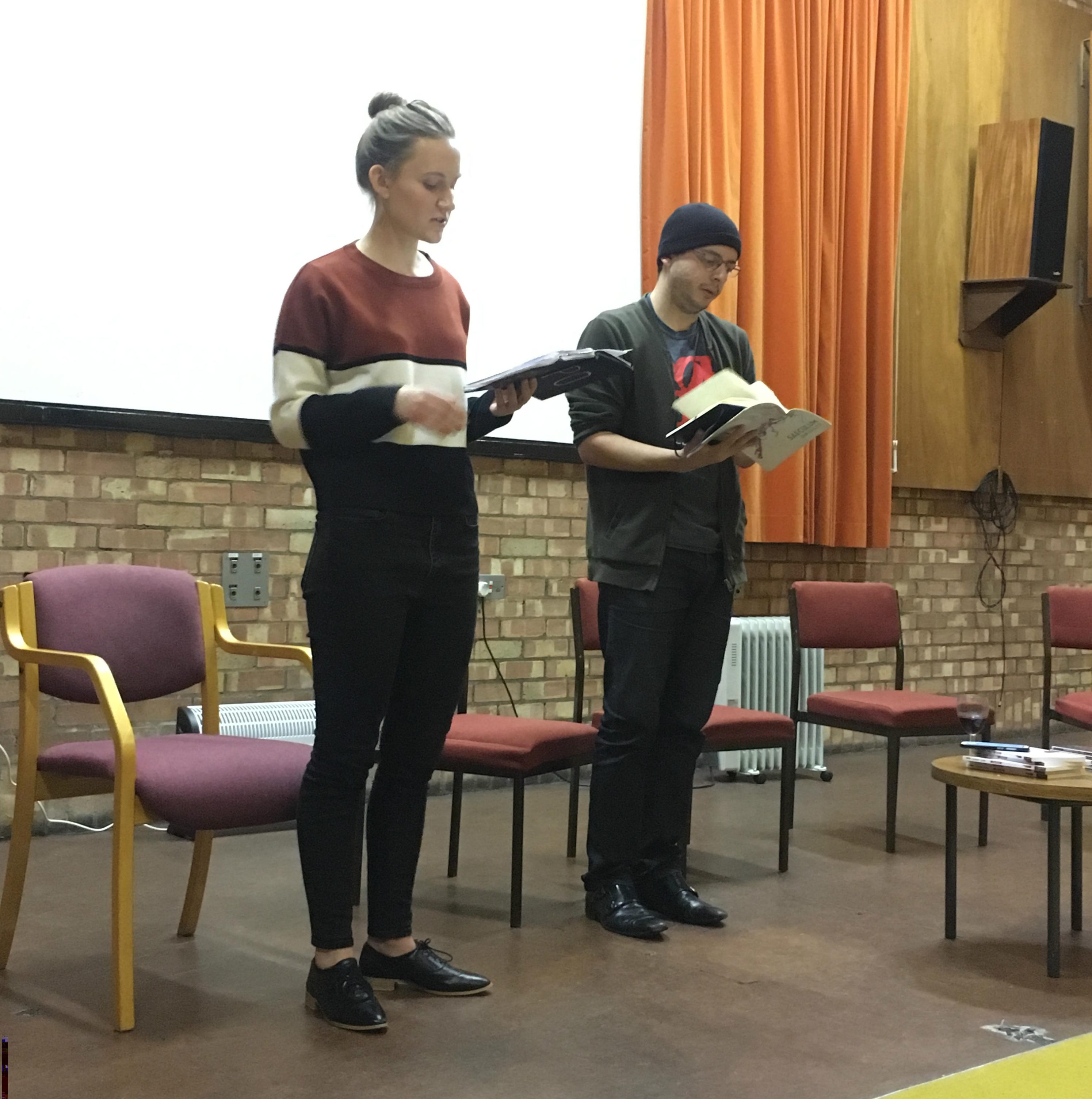
The slam team finished with a brilliantly intricate and collaborative poem that employed a piling up of multiple sounds in order to reflect the noise of our digital environments and the plurality of voices that inhabit it. This poem concluded an evening that had been, firstly, demonstrative of Birmingham’s diverse talent, but also reflective about the circumstances that are coming to seem increasingly characteristic of our moment in history, both personally and environmentally.
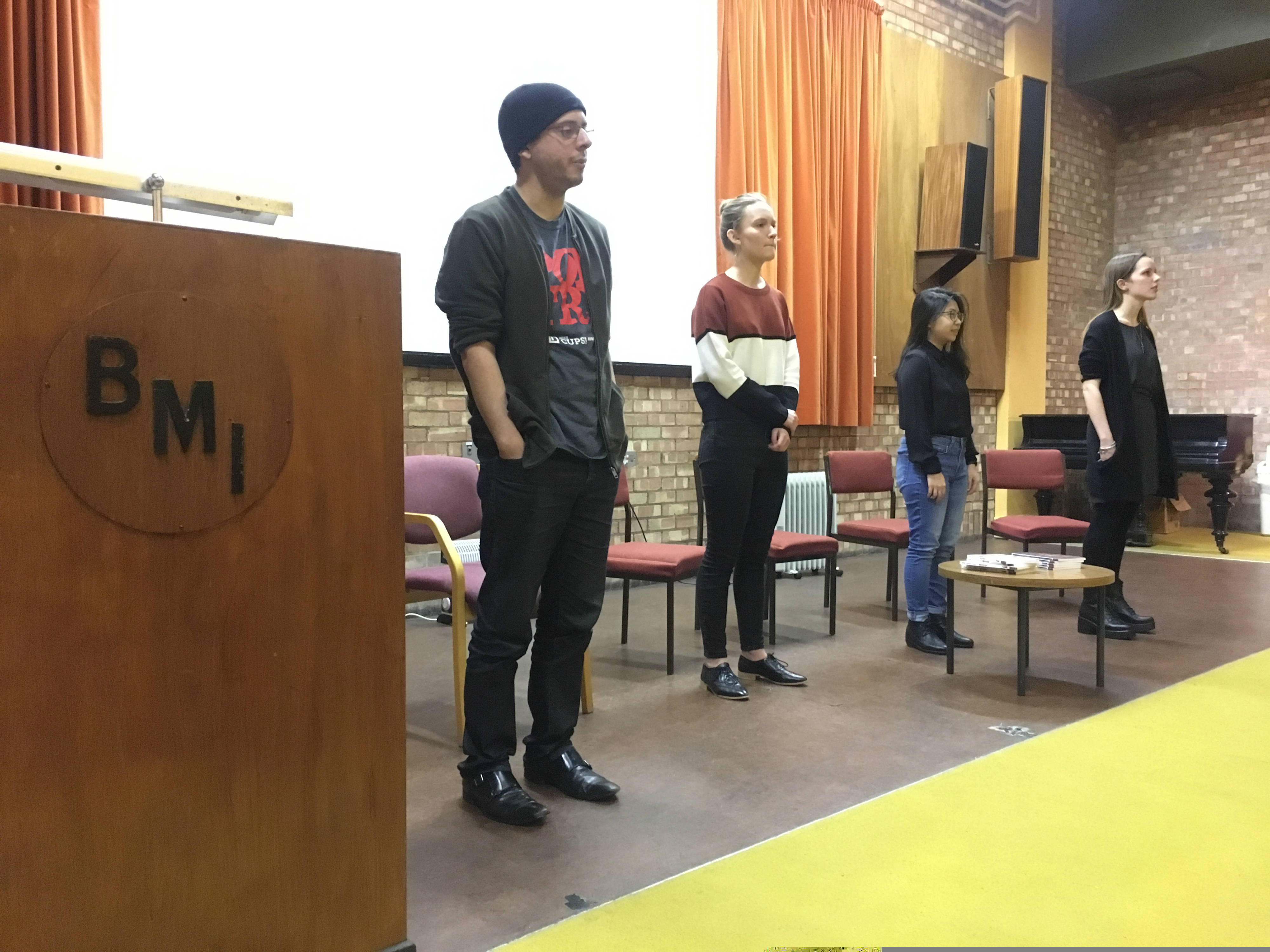
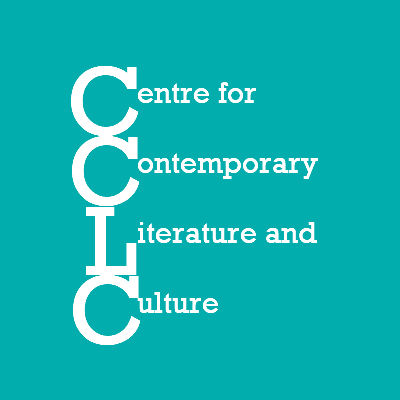
Twitter: @CCLC_bham
Website: https://bit.ly/2DWj1Qg
To join the CCLC maling list please email: r.sykes@bham.ac.uk
